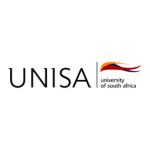
Sonja Cilliers is the managing director of the nonprofit MathMoms. The mothers not only help learners at school, they also open their own homes to learners in the afternoons to help them with their homework. The MathMoms use innovative teaching methods; maths is taught as a language through practical participation in activities, as well as the performance of different tasks in everyday situations. Practical activities also help the learners to be more involved in and alert to their environment. They understand better because they are actively involved in the learning process.
Because of the growth of the programme, Sonja’s work has shifted to one of being the glue holding the project together. She says the idea of MathMoms came to her during a storm in the Karoo during a drought. Sonja discussed her idea with a chief educational officer at the Western Cape education department. They drew up a proposal and contacted a school and, through the school, some of the unemployed mothers.
By July 2016, the pilot programme with eight moms and 32 children was up and running in the first school. Now the programme is in 27 schools, working with nearly 200 MathMoms and more than 3 000 children. In every school there is an experienced retired teacher as a MathMentor who guides the MathMoms.
The name of the organisation at which you work
MathMoms
Your educational background, listing your qualifications and institutions, if any:
- BA, Stellenbosch University
- HOD, Stellenbosch University
- Various courses in trauma release
Your greatest achievement
Sonja’s greatest achievement is that she has been able to help establish so many communities of care. One of the moms in her programme recently said to Sonja that she was the first white person she encountered in her almost four decades on Earth to treat her as a person and that this changed her perspective on how she views the relationships between races.
Sonja says she is telling this story not as a “good white person”, but as an example of what she hopes to achieve through her life and work: to make people feel seen, respected, valued as equals. To build bridges in and between communities, to open doors to new perspectives. To see the people in the programme go on to achieve greater things — earn university degrees or land in a good job. To hear how a family’s family life has changed because their approach to relationships have changed.